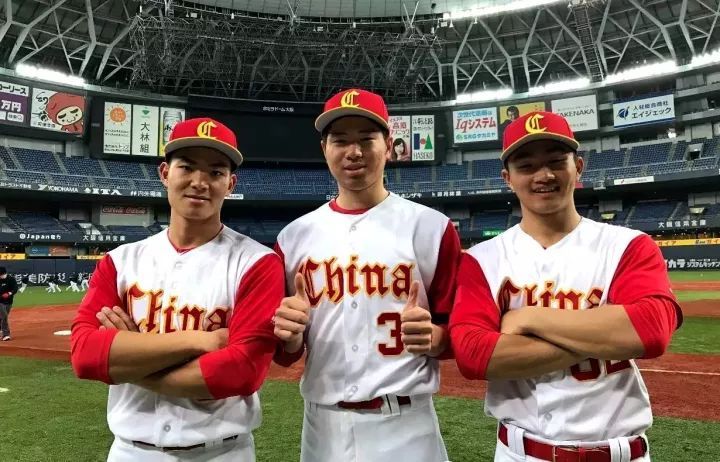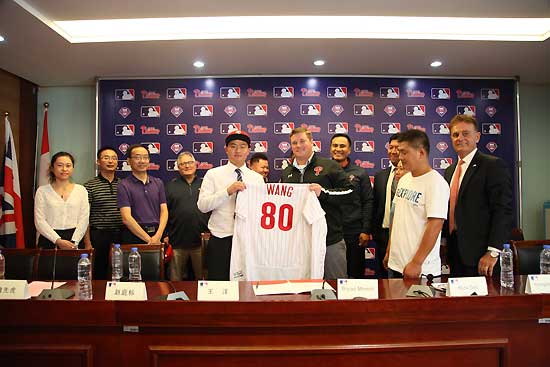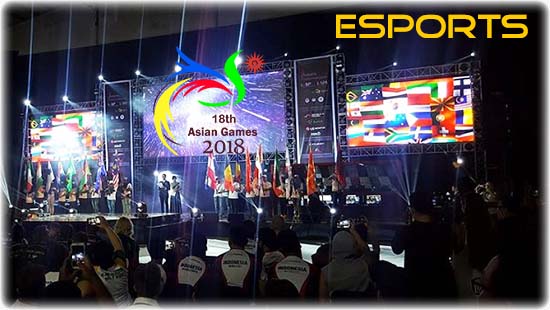Baseball is trending the right direction in China

The China Sports Column is a The China Project weekly feature in which China Sports Insider Mark Dreyer looks at the week that was in the China sports world.
The fact that baseball is huge in Korea, Japan, and Taiwan, yet barely makes a ripple on the Chinese mainland, is a much-quoted observation when looking at the state of U.S. sports in China. But that’s not to say that Major League Baseball (MLB) has been sitting on its hands. Following the signing this week of Wang Yang 王洋 (whose English name is Bruce) by MLB’s Philadelphia Phillies, the league’s three development centers in China — in Wuxi, Changzhou, and Nanjing — have now produced four homegrown players that have been picked up, respectively, by the Baltimore Orioles, the Pittsburgh Pirates, the Boston Red Sox, and now the Phillies.

The league is still waiting for someone to make the step up in class from minor league baseball to the big leagues — Wang will head to Philadelphia’s Single A affiliate in Clearwater, Florida — but the trajectory is positive, with your correspondent happy to wager that more prospects from China will debut in MLB over the next decade than in any of the NBA, the NFL, or the NHL.
Basketball, of course, remains massively popular in China, but the NBA is simply too competitive with players from all around the world vying for just 60 spots in the draft, many of whom never make it onto an NBA game roster. Meanwhile, the NFL has been successfully recreating the NBA model in China — albeit on a much smaller scale — by building from the bottom up through a variety of grassroots initiatives, but the more complex nature of the game and the lack of any real league here means that Chinese players start much too far behind their U.S. counterparts. Hockey, meanwhile, is something of a wild card, especially with the country’s recent push to develop winter sports, but the country’s best players are still nowhere near the NHL level, and the game can be strategically overwhelming for newcomers.
Baseball, in contrast, is amazingly simple as a concept, meaning that gifted athletes can transition more easily even if they don’t pick up a bat for the first time until later in their childhood.
Japan (58), South Korea (21), and Taiwan (13) have all produced multiple MLB players, proving that there’s no physical reason why China can’t turn its minor-league pipeline into at least a few major-league stars. MLB China is currently looking for a new full-time head: whoever fills that spot has one hell of an opportunity.
Meanwhile, China’s baseball team at the ongoing Asian Games has been training not in China, but with a little-known team called the Texas AirHogs. The experiment — which has seen 30 Chinese players fill the majority of the team’s roster spots — has been getting some coverage in recent weeks, but this comprehensive piece in Texas Monthly is well worth your time. An excerpt:
The AirHogs started the season abysmally. At the beginning of June, their record was 2-14. But signs began to emerge that there were better times ahead. Scott Sonju, who runs the day-to-day operations of Neltex Sports, told me that he knew things were looking up when an opposing pitcher beaned an American AirHog and the Chinese players responded by flooding out of the dugout and onto the field to come to his defense. The season had been punctuated by other small highlights that felt like major milestones. Perhaps the greatest had come on June 30, when Luo Jinjin, one of the team’s infielders, had seemingly out of nowhere put a perfect swing on a ball, lofting it into AirHogs Stadium’s left-field stands. It was the first and only time in the season that a Chinese player hit a home run. As Luo rounded second base, he raised his fist in the air, celebrating like he’d just hit a World Series–winning blast.
After mixed, if improving, results in the U.S., the team is now in Indonesia at the Asian Games, where the Chinese team must avenge a tough 1-0 loss to Taiwan from the “Super Round” as the two teams again face each other for the bronze medal.
For all my optimism above about China’s future baseball stars, it would still be a huge shock if China finishes somewhere other than fourth — the same position it has finished in every previous edition of the competition dating back to 1990 (behind some combination of Japan, South Korea, and Taiwan) — but the squad is really only using these Games and the Tokyo Olympics in 2020 as a warm-up for the Paris Olympics in 2024. In other words, they’re playing the long ball game.
~

Esports have officially arrived at the Asian Games — if only as a demonstration sport — with Chinese media going more than a little giddy over their country’s successes this week. One columnist described a scene of journalists glued to the TV screen in the press center during the League of Legends final, quoting a colleague as saying “Although I don’t know what they are doing, I just feel so excited now.”
Asian Electronic Sports Federation president Kenneth Fok on China's esports win at #AsianGames2018 : "The last time I cried watching a sports event was at the 2008 Beijing Olympics when I watched my wife Guo Jingjing win the [diving] gold medal." #LOL #AOV pic.twitter.com/CLNJhwOHle
— Mark Dreyer (@DreyerChina) August 31, 2018
Hong Kong’s Kenneth Fok, whose father Timothy is head of the Hong Kong FA, was another swept up by gaming fever, though that’s more understandable given that he’s head of the Asian Electronic Sports Federation, one of the key organizations in ensuring that esports will become a full medal discipline at the Asian Games four years from now in Hangzhou.
Fok Jr. is more known on the mainland as the husband of China’s “diving queen,” Guo Jingjing 郭晶晶, who has six Olympic medals, of which four are gold. Pro Evolution Soccer is one of the six gaming events in Indonesia, so perhaps we’ll see some other “pure” sport video games brought in for 2022. Anyone else remember Daley Thompson’s Decathlon on the Commodore 64?
~
Finally, China’s great leader has been feeling the love domestically ever since his accession in 2012, but the adulation has reached new heights in recent times, with one sporting portrait in particular getting some coverage in people’s favorite the Global Times this week.
This piece tells of Jiangsu artist Wang Yi, who reworked a well-known sporting picture then-vice president Xi Jinping into what he calls Chinese Dream, Soccer Dream. But there are a couple of details here that deserve a mention. Over to Wang:
“I started painting the picture right after I saw the news photo of this scene on ifeng.com in February 2012. I was excited to see Xi kicking a football, and his posture was very professional.”
Wang painted his version of the picture, then reimagined the scene the following year, replacing — naturally — the Chinese and Irish officials in the backgrounds with Chinese ethnic minorities in different traditional costumes, creating this timeless classic.
https://twitter.com/samuel_wade/status/1034810863683682306
What Wang apparently failed to realize, though, was that Xi wasn’t even kicking a soccer ball, but a Gaelic football — something that Irish folk have been keen to point out online ever since.
The China Sports Column runs every Friday on The China Project. Follow Mark Dreyer @DreyerChina





